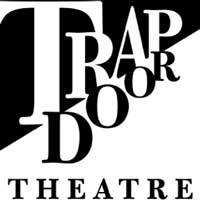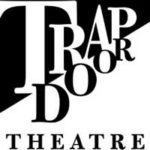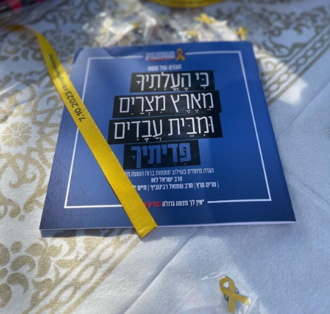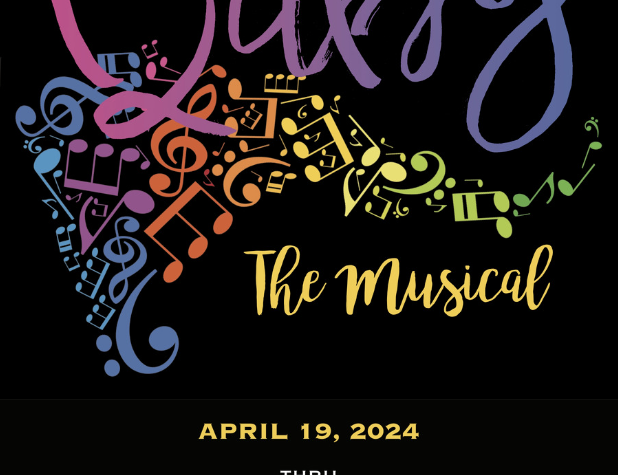
( NOT RATED)
The Trap Door Theatre, in Chicago, is currently featuring the online presentation of “Alas”, a fragment of Matei Visniec’s “Cabaret of Words” that was translated by Daniela Șilindean. Director Michael Mejia has taken this small portion of Visniec’s play and has recast it as a short experimental film. Hence there are no stars attached to this review, because it would not be fair to judge this film as “legitimate theater”, for most certainly it is not.
Visniec’s original script has to do with the theme of confronting “modern-day complacency” when it comes to glossing over uncomfortable truths that underlie a society’s conflicting values that legitimate unequal treatment of people, for example, rich versus poor, whites versus racial and ethnic minorities, and migrants. Director Mejia’s choice of this twenty-minute fragment was most likely to point up various manifest and latent inequities in today’s United States and in the world at-large. Hence the overarching emphasis of the show has to do with how individuals may live side-by-side with their neighbors physically but may hold very different political ideas and cultural values as well as have very different life paths. In each country being depicted in this script, the larger secular culture promotes a specific narrative designed to keep certain people included within the mainstream while excluding others. Such narratives typically reinforce “things as they are” in order to preserve the authority of powerful interests in control of government and society.
The theme of how people are constantly separated from each other looms large throughout the production. The phrase “Fence off” starts to sound like “Fuck off” when repeated over and over, and that is by design. Shattering oppression, according to the video, means tearing down the fence, or tearing down the wall, or not building the wall or fence in the first place.
One can watch the performance for what it is, but one’s thoughts can drift. Talk of fences brings to mind President Donald Trump and his mantra to “build that wall”: ostensibly to keep migrants from the southern border from entering the United States. But the show is also vaguely reminiscent of Trump’s recent cognitive test, where he subsequently boasted to the news media about successfully remembering the words “Person, woman, man, camera, TV.” Similarly, the characters in this excerpt of “Cabaret of Words” reiterate the following meme: “Alas, country, pain, barbarians, invaders, freeloaders, really.” The irony is that when such words are said repeatedly and without emotion, they do not become more powerful; they become empty. The people who speak them become a shell of themselves.
Alas, the main fault with “Alas” is that we can never fully get into the heads of each of the characters to understand their true feelings. The closest we can get to understanding what motivates them is to examine their facial expressions and their body language, above and beyond the words they utter. Though the primary spoken language is English, there are considerable shifts to Afrikaans, Catalan, Italian, and Spanish without the use of any subtitles. This is not meant to be problematic; rather it emphasizes that what is being said is supposed to be devoid of meaning. The use of these additional languages doesn’t make the story any deeper, just muddier.
There is no engine to the story. It is not a call to arms against inequity or disparity, or a call to rid one’s soul of hate or the distrust of others, or even an exhortation to bring people closer together so as to move in the direction of “liberty and justice for all.” Especially in an era with ongoing protests after the death of George Floyd (in combination with the Black Lives Matter movement), the show’s overall understanding of history is much too static and approaches the problem of social inequality by implying a fixed, if not stagnant, cultural and historical narrative. Though it points to the oppression of subordinate groups of people in a given society, the work fails to adequately address cultural contradictions (if not outright culture wars) that may have led up to this subordination.
Unfortunately, the playwright does not give enough credence to the powerful force that words can be in both positive and negative ways. When words do not ring hollow—and when they are not thrust into absurdity or obscurity—they can potentially motivate people to act. History is thus a dynamic process of the human collective, rather than a presumed marching-in-place.
“Alas” brings together an international cast from ten different countries, who perform remotely, often speaking in their native languages. Cast members include Venice Averyheart, Jenny Beacraft, Anarosa Butler, Carl Chambers, Dermot Flanagan, Neema Lahon, Aida Llop, Emily Lotspeich, Leslie Lund, Malcolm McCarthy Herrera, Robin Minkens, Emily Nichelson, Cristina Pronzati, Ann Sonneville, Keith Surney, and Irvine van der Merwe. This is a curious production, if not overly surreal, with many disparate elements, strange video effects, great makeup and costuming, and good sound design. But the excessive artsiness makes the work choppy and more disconnected than need be. The best way to describe this short film is that we might have otherwise seen it on a TV screen accompanying an avante garde visual art exhibition. It would have served to place the collection into some cultural or historical context while doubling as part of the mixed media.
While “Alas” can lend itself to a stimulating discussion about culture, economics, politics, and society in this country and worldwide, the show could have been made so much richer if we had only cared about each of the characters, especially in the context of the words they used to present themselves. The script basically ignores the need for empathy among the viewing audience as a means for keeping us engaged. The result is a production where many important subjects are approached at arms’ length and are made out to be absurd rather than meaningful.
The Trap Door Theatre’s presentation of “Alas” is currently available online through Vimeo. Pay-What-You-Can tickets to the virtual performance can be purchased at trapdoortheatre.com
Suggested ticket price/donation is $10. Tickets are on sale now.
A video link will be sent to patrons after their purchase. “Alas” can be viewed at any time after receiving the link.
Visit trapdoortheatre.com for more information.
(FYI: There’s nothing wrong with your computer or audio feed when the sound doesn’t come on until 34 seconds after the picture begins. Sad to say, my video stream stopped prematurely with 30 seconds to go, and I couldn’t get it back. I presume that I missed only the remaining credits.)
To see what others are saying, visit www.theatreinchicago.com, go to Review Round-Up and click at “Alas”.







More Stories
“How to Know the Wild Flowers: A Map” reviewed by Julia W. Rath
“Baby: the Musical”
“Nana” reviewed by Jacob Davis